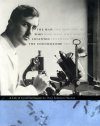![The Man Who Invented the Chromosome The Man Who Invented the Chromosome]()
Click to have a closer look
About this book
Contents
Customer reviews
Biography
Related titles
About this book
Born by mistake, or connivance, to struggling parents in a small Lancashire cotton town in 1903, an uninspired Darlington inadvertently escaped the obscurity of farming life and rose instead, against all odds, to become within a few short years the world's greatest expert on chromosomes, and one of the most penetrating biological thinkers of the twentieth century. Harman follows Darlington's path from bleak prospects to world fame, showing how, within the most minuscule of worlds, he sought answers to the biggest questions – how species originate, how variation occurs, how Nature, both blind and foreboding, random and insightful, makes her way from deep past to unknown future.
But Darlington did not stop there: chromosomes held within their tiny confines untold, dark truths about man and his culture. This passionate conviction led the once famed Darlington down a path of rebuke, isolation, and finally obscurity. As The Man Who Invented the Chromosome unfolds Darlington's forgotten tale – the Nazi atrocities, the Cold War, the crackpot Lysenko, the molecular revolution, eugenics, civil rights, the welfare state, the changing views of man's place in nature, biological determinism – all were interconnected. Just as Darlington's work provoked him to ask questions about the link between biology and culture, his life raises fundamental questions about the link between science and society.
Contents
Introduction
I. Adventures in Lancashire
1. An Improbable Birth
2. A Rising Tide
3. Auspicious Beginnings
4. In Search of Tulips and Truth
II. Science
5. From Cytology to Evolution
6. Roots of a Scientific Controversy
7. Method, Discipline and Character Interlude
III. Politics
8. The Lysenko Affair
9. Marxism and the Slaying of a Mentor
10. Science in a Changing World
IV. Man
11. The Conflict of Science and Society
12. On the Determination of Uncertainty
13. The Breakdown of Classical Genetics
14. On the Uncertainty of Determination
15. One Final Hurrah
Conclusion: Paradoxes
Bibliography
Index
Customer Reviews
Biography
Oren Solomon Harman is Lady Davis Fellow at Hebrew University of Jerusalem and Lecturer at Bar-Ilan University.
Biography / Memoir
By: Oren Solomon Harman(Author)
329 pages, b/w illustrations
"Darlington's archives are a rich seam to which Oren Solomon Harman brings a keen eye. He combines impressive contextual knowledge with touches of biographical flair."
– Marek Kohn, New Scientist 2004
"Cyril Darlington was the leading cytologist in Britain between 1930 and 1950, and a major figure in the British genetics community, as well-known for his cantankerous personality as for his science [...] Overall, Harman has done an excellent job of portraying Darlington's stormy personal and scientific life, bringing out his flaws as well as his achievements."
– Brian Charlesworth, Nature Medicine 2004
"As Oren Solomon Harman shows in The Man Who Invented the Chromosome, Darlington's controversial cytological research clarified many basic biological issues and provided essential evidence for the evolutionary synthesis of the 1940s. He 'invented' the chromosome by describing its behaviour in a way that made genetic and evolutionary sense [...] A strong commitment to an evolutionary perspective led Darlington to some unpopular conclusions, which he published in books and articles aimed at a wide audience. Convinced that biological principles, especially genetics, dictate human values, he espoused strong eugenic programmes [...] He felt that the time had come for science to determine morality: religion and politics should be replaced by evolutionary logic for individuals, countries and humanity [...] Harman provides a cautionary tale for those who seek to tie our humanity too closely to what is found in our chromosomes."
– Rena Selya, Nature 2004
"Harman's brilliant book – the first and, almost surely, the definitive biography – wrests the earlier Darlington from the later crank, recovering him as a human being and restoring him to scientific eminence. Drawing on Darlington's voluminous papers, correspondence, and diaries, Harman recounts the personal odyssey that took his subject from a bleak childhood to high achievement in the new genetics; his scientific and political engagements, particularly his differences over Lysenko with his fellow biologists, many of them on the left; and his slide into the cantankerous biological conservatism that marked his later years. Harman writes in supple prose and with capacious discernment, providing a portrait of the man that is at once empathetic and critical, a study in character and personality that illuminates his science as well as his personal and professional lives."
– Daniel J. Kevles, New Republic 2005
"Harman does a good job of explaining the complex intellectual and technical problems in genetics and cytology and helps us understand the central importance of cytology to the modern conception of genes and genetic processes This book clearly fills a void. Darlington should be better known, to both historians and scientists alike This is a book that nobody who is interested in the history of twentieth-century genetics can afford to overlook."
– Manfred D. Laubichler, PhD, Journal of the History of Medicine



































